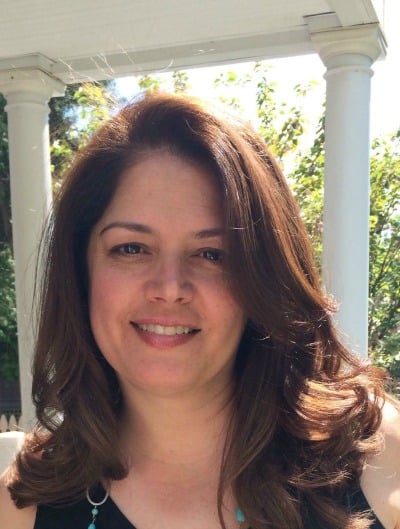 I have been a practicing attorney for 20 years. Over those 20 years, I’ve worked as a public interest lawyer, corporate/real estate attorney, and a special education attorney. I’ve worked part-time all of those years while raising three children. I’ve worked with families from all social-economic backgrounds over the years, but my 2016 fall semester as a clinical professor at Rutgers Law School’s Education and Health Law Clinic will remain the most rewarding work I have done as an attorney.
I have been a practicing attorney for 20 years. Over those 20 years, I’ve worked as a public interest lawyer, corporate/real estate attorney, and a special education attorney. I’ve worked part-time all of those years while raising three children. I’ve worked with families from all social-economic backgrounds over the years, but my 2016 fall semester as a clinical professor at Rutgers Law School’s Education and Health Law Clinic will remain the most rewarding work I have done as an attorney.
I was given this opportunity when, Jennifer Rosen Valverde, Esq., a clinical professor for Rutgers Law School’s Education and Health Law Clinic went on sabbatical for six months. I put a hold on my private practice and focused wholeheartedly on the task I was so lucky to be given. It allowed me to experience working in a clinical setting with law, social work and medical students. The clinic’s mission is to bring together professionals and graduate students in the fields of law, health and social work to help low income children with disabilities and their families address social and legal problems affecting their health and well-being. The joint project, called the H.E.A.L. Collaborative (Health, Education, Advocacy and Law) is between Rutgers Law School-Newark’s Education and Health Law Clinic and Rutgers New Jersey Medical School-Outpatient Pediatrics Department.
My clients met the federal poverty guidelines which meant, for example, a family of five making $56,820 could get legal services for free. The children I represented suffered from serious medical issues, were autistic, and had various learning disabilities such as dyslexia. These families lived in poor housing conditions, illegal inhabitable apartments; some were homeless, unemployed and dependent on public benefits. Most of my clients did not have a car and had to rely on public transportation to get to our office and to work. If my clients worked, they were working nontraditional hours and were always in fear of losing their job if they had to take off from work to take their child to the doctor, deal with an issue at school, attend a school event, or attend an IEP meeting. One client worked from 7 p.m. to 7 a.m. She relied on her mom to watch her kids and when she came home, she just made it in time to make her children breakfast and take them to school.
Communication was a challenge as well. Some clients did not have computers and printers at home. They relied on computers at public libraries to read emails and to access their child’s school portal to check on their progress. Some parents had cell phones that they could only call out on but not receive calls. Some had phone services with a certain amount of minutes per month and once they were spent, we could not get in touch with them until the following month. For families in homeless shelters, communication was extremely challenging. Sometimes there was a language barrier and a cultural barrier. I had Spanish-, French- and Portuguese-speaking clients. I had the pleasure of representing a mother who was deaf.
Stress was a huge factor in all of my cases. Parents were overwhelmed with their everyday life. They feared losing their job, not making enough money, providing their children with a warm and safe home, and making sure the medical needs of their child were being met. Setting priorities was a never-ending problem for my clients. Losing your apartment or job took precedent over whether your child was getting a good education. The idea of having to go to mediation to seek out educational services you thought your child was entitled to was incomprehensible to some of my clients. Some just wanted to give up, but they all wanted a better life for their child and getting a good education was the way to having a better life.
My take away from this experience was, I got to work with caring and loving families and children who wanted a good education and had hopes and dreams like any other child. I learned how lucky I was to work with a team of legal, social and medical professionals and how difficult it was going to be when I returned to private practice without them. I came into this position understanding the importance of not only representing your client, but also looking at how you can make systematic changes. I will continue to do that for as long as I practice law. The day that children with special needs walk into a school and do not have to worry about having an Individualized Education Program (IEP) or 504 Plan and can simply get a quality education is something I can only hope for. I am and forever will be a social justice attorney.
For my students who I taught for just six months, I hope that I taught them to always love what they do and to understand the power they have and the gift their degree can give them in helping others. I hope they learned the importance of being client focused and listening to their clients. Going forward, they will be sensitive to the learning abilities of all people they come in contact with. Finally, that special education is not a sole practice it is a team approach.
Verona resident Norma Francullo, a special education attorney, is of counsel at Parles Rekem.

